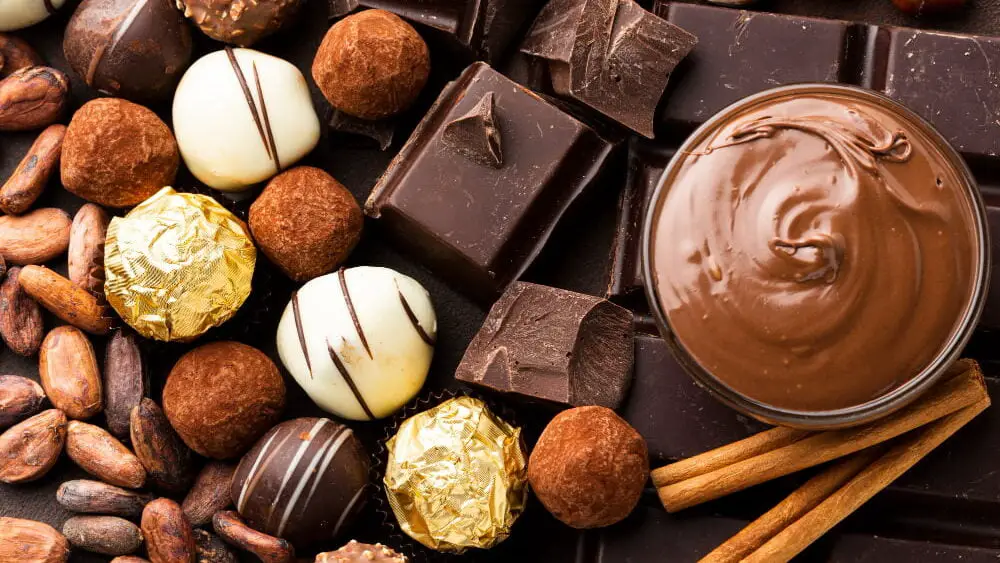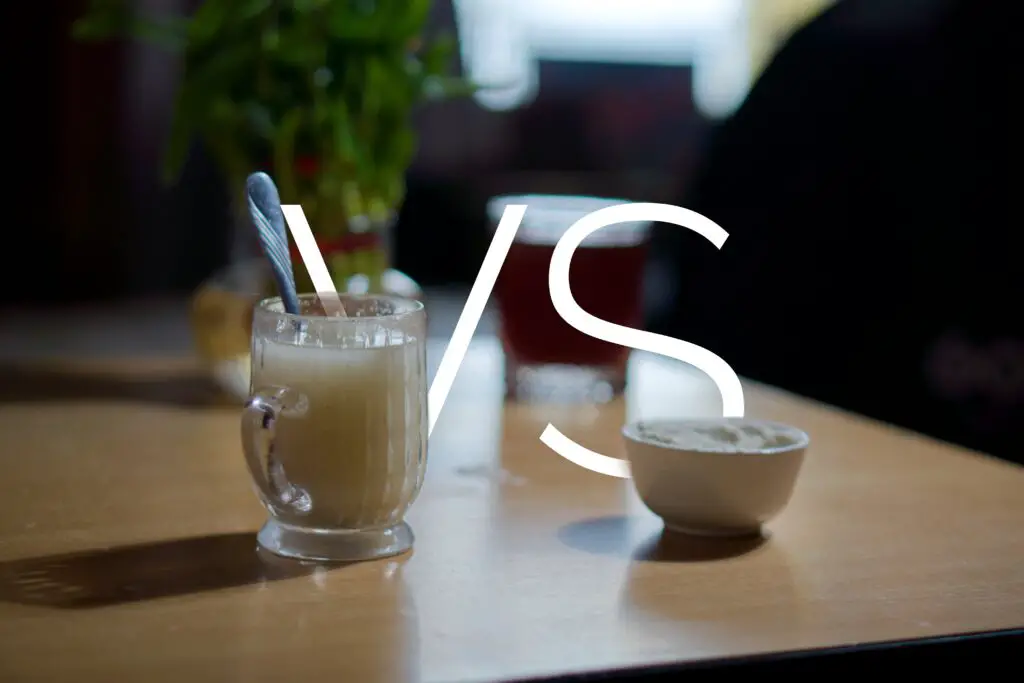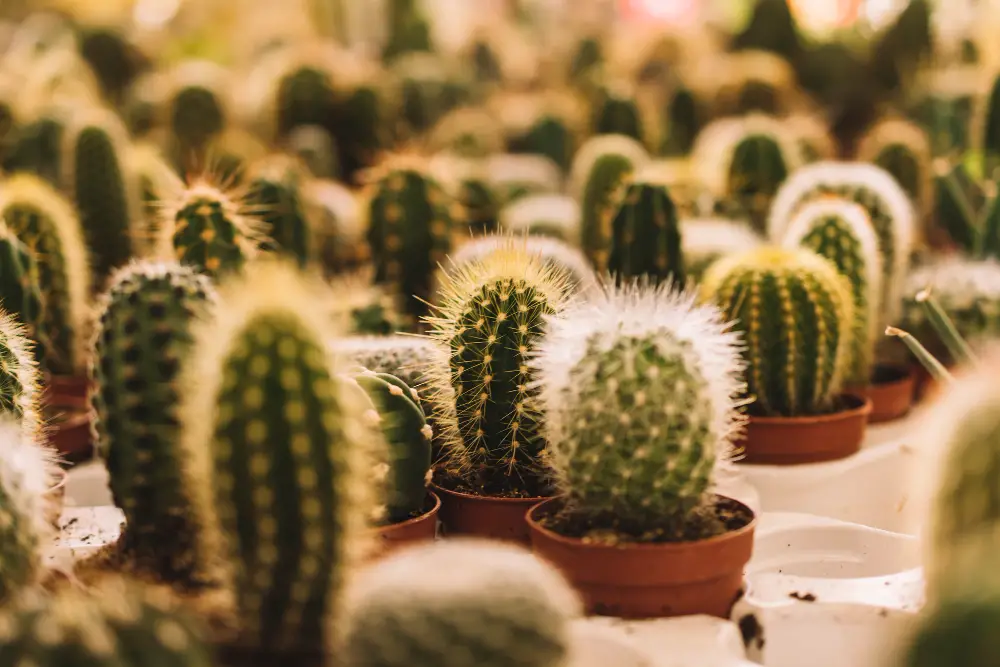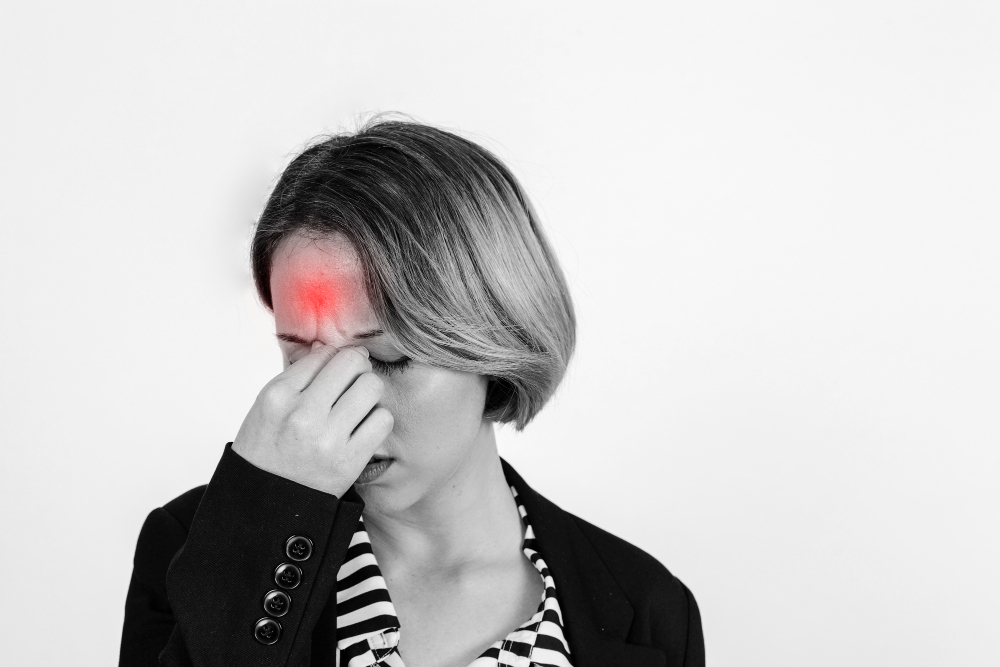Chocolate, cherished by everyone, always finds its way into our taste buds, on almost every occasion, from a happy and celebratory moment to a gloomy day. Be it a tempting bar, mouth-watering truffle, or a chocolate drink, its smooth texture and staying rich flavors give heavenly pleasure to our palate. It is well known that chocolate contains antioxidants and has many health benefits. But recently, a new perplexity has been floating among chocolate enthusiasts; Does chocolate have caffeine? Well, the answer to this question is yes as well as no. So let’s check out in detail the caffeine content in chocolates!
What is cocoa?
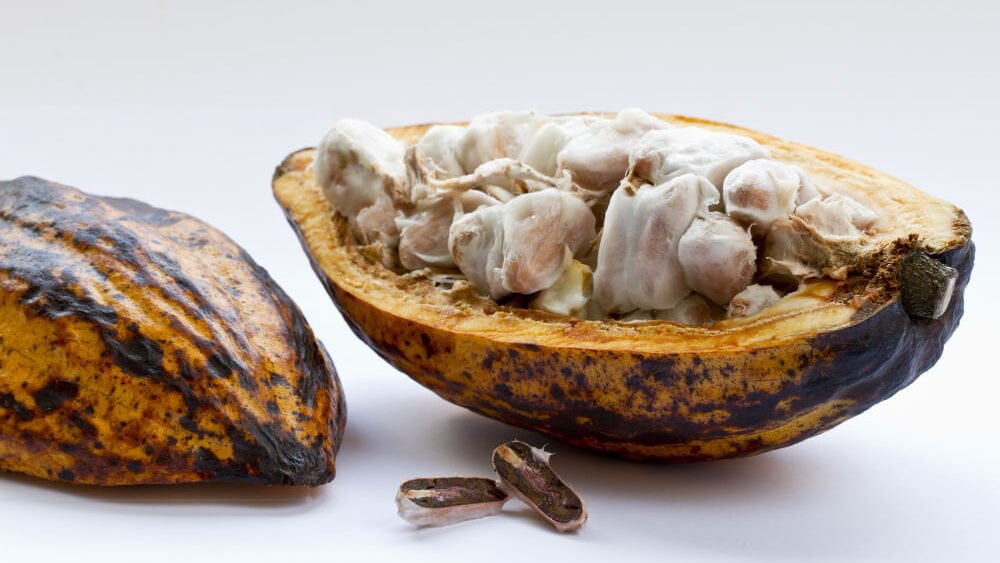

So before going into detail about the caffeine content in chocolate, let’s hunt into the captivating world of cocoa, the central ingredient in chocolates. The Cocoa tree, Theobroma cocoa, grows in tropical regions near the Equator. Its fruit, known as cocoa pods, contains almond-shaped cocoa beans or cocoa seeds that hold the key to chocolatey delight. These cocoa seeds are removed from the pods. They are fermented, dried, roasted, and finally liquefied or ground into a paste which is further processed for making chocolates and chocolate products. The roasted cocoa beans ground into a liquid state contain cocoa butter and dry cocoa solid.
The caffeine content in chocolates
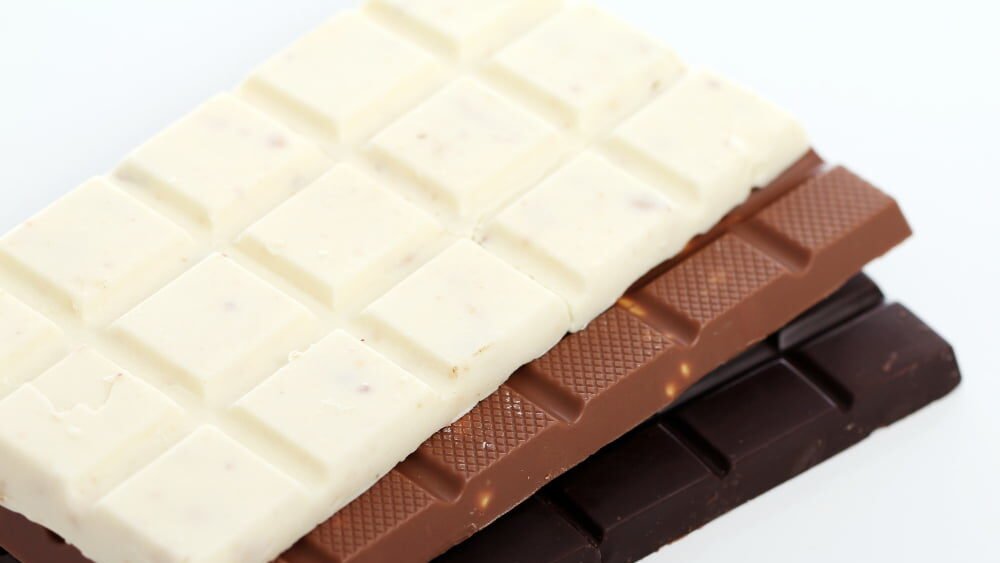

The caffeine content in chocolates differs with the place where the cocoa is grown. For example, cocoa from South Africa has nearly five times more caffeine than cocoa grown in Africa. Again, the caffeine content significantly changes during the roasting process of cocoa beans. Dry cocoa solids produced during the processing of cocoa contain caffeine, whereas no caffeine is present in cocoa butter. Chocolates can be typically categorized as dark chocolate, milk chocolate, and white chocolate.
To assess visually, it can be said the darker the chocolate, the higher the dry cocoa content and so the higher the caffeine content. According to the United States Department of Agriculture, dark chocolate contains 12 milligrams of caffeine per ounce. In comparison, milk chocolate contains nearly half (5.9 milligrams) of caffeine per ounce, and white chocolate contains no caffeine.
effects of caffeine content in Chocolates on Kids
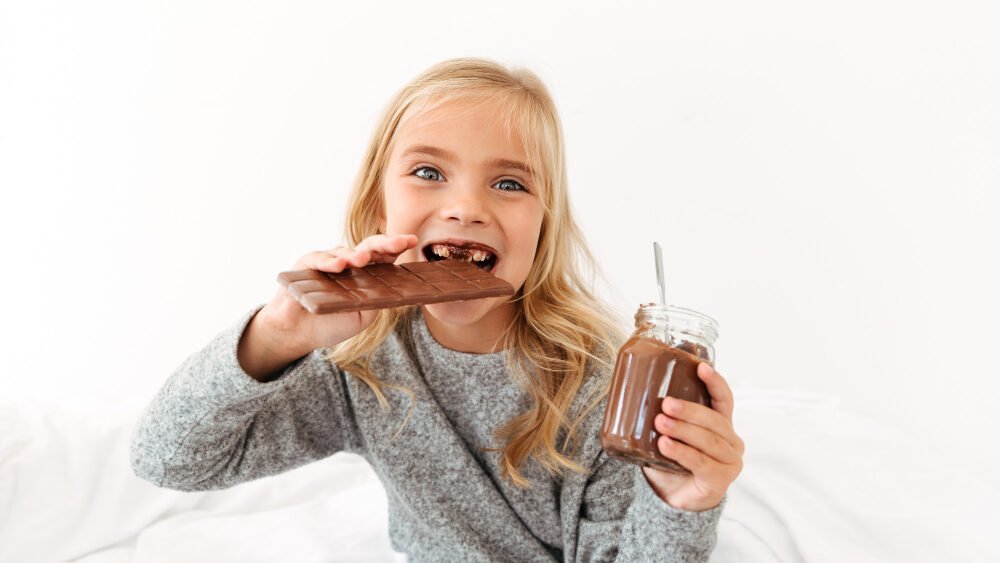

As chocolates contain caffeine, it becomes a concern for their adverse effects on the tender minds of kids and babies who unknowingly indulge in them beyond limits. Moreover, many baby foods cleverly include chocolate flavors to make it easier for moms to feed their little ones. The irresistible taste of chocolate helps overcome feeding challenges and turns mealtime into a delightful experience for moms and babies. When taken in excess amounts, caffeine can cause nervous disorders, stomach upset, increased heart rate, and restlessness with trouble sleeping. It can affect a kid’s normal growth and development. A study has shown that taking high amounts of caffeine is associated with higher levels of stress, depression, and anxiety in school children. It’s important to be mindful of the amount of chocolate children consume, as excessive intake can contribute to childhood obesity.
It should be noted that chocolate comes with many health benefits, such as increasing serotonin levels, boosting energy, antioxidant flavonoids that improve clotting properties in blood, and scavenging free radicals that restore healthy skin, preventing acne. It is loaded with minerals such as selenium, zinc, potassium, magnesium, and iron which are essentially required during the early formative years. So parents and baby feeders should strike a balance in chocolate intake by kids to have maximum benefits and minimum side effects due to their caffeine content.
Caffeine in Chocolate vs. Coffee Vs. tea
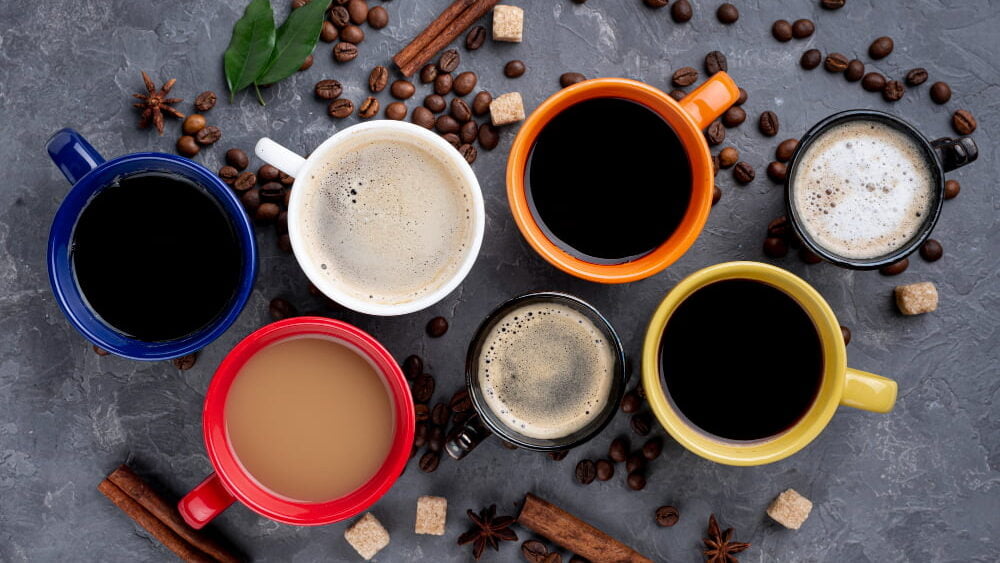

As we know, caffeine is the most consumed mind-bending drug all over the world, which gives curiosity among caffeine addicts as to what amount of caffeine they can get from a cup of coffee or tea, or hot chocolate. National nutrient database USDA says that a cup of hot chocolate has 7.44 milligrams of caffeine, while a single cup of brewed coffee has 96 milligrams of caffeine, While an average cup of black tea with milk contains about 47 milligrams of caffeine. This value can vary widely with the process and the type of chocolate, coffee, and tea used in preparing beverages.
Final words
In life, we often come across situations where we have to make choices that impact our well-being and happiness. Chocolate is one such dilemma. Be it a delectable bar or a refreshing drink, it instantly fills us with joy and rejuvenates us. At times, a tiny piece of chocolate can even save a relationship from crumbling. Therefore, it’s perfectly fine to indulge in the emotional benefits of chocolate and not feel any remorse.
Hope you find this post useful!
If you want to read more of our content, please visit our blog
Featured Image by Freepik
DISCLAIMER – The tips provided are for informational purposes only and do not constitute professional advice.
